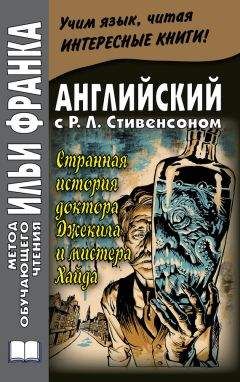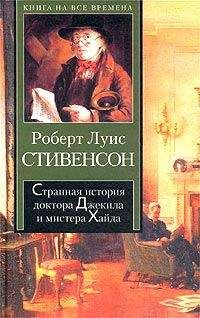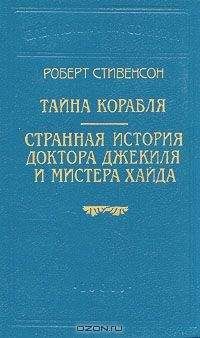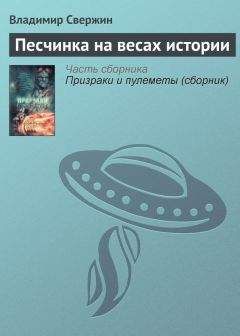Robert Stevenson - Английский язык с Р. Л. Стивенсоном. Странная история доктора Джекила и мистера Хайда
holograph ['hOlqgrQ:f] assistance [q'sIst(q)ns] decease [dI'si:s] benefactor ["benI'fxktq] disappearance ["dIsq'pI(q)rqns] absence ['xbs(q)ns] burthen ['bq:D(q)n]
The will was holograph; for Mr. Utterson, though he took charge of it now that it was made, had refused to lend the least assistance in the making of it; it provided not only that, in case of the decease of Henry Jekyll, M.D., D.C.L., LL.D., F.R.S., &c., all his possessions were to pass into the hands of his "friend and benefactor Edward Hyde"; but that in case of Dr. Jekyll's "disappearance or unexplained absence for any period exceeding three calendar months," the said Edward Hyde should step into the said Henry Jekyll's shoes without further delay, and free from any burthen or obligation, beyond the payment of a few small sums to the members of the doctor's household.
This document had long been the lawyer's eyesore (этот документ давно оскорблял взор нотариуса = был источником мучений для нотариуса; eyesore — что-либопротивное, оскорбительное/дляглаза/; sore — болячка, рана, язва). It offended him both as a lawyer (он оскорблял его и как нотариуса) and as a lover of the sane and customary sides of life (и как приверженца здравых и привычных сторон жизни = издавна сложившихся разумных традиций; lover — любитель; приверженец; custom — привычка; обычай), to whom the fanciful was the immodest (для которого причуды казались неприличными: «причудливое было нескромным»; fancy — причуда; modest — скромный). And hitherto it was his ignorance of Mr. Hyde that had swelled his indignation (и до сих пор, именно то, что он не знал мистера Хайда, переполняло его негодованием; ignorance— невежество; неведение, незнание; toswell— надуваться; быть переполненным чувствами); now, by a sudden turn, it was his knowledge (а теперь, вследствие такого неожиданного поворота /дела/ — осведомленность /о нем/; turn— оборот; перемена, изменение /состояния/). It was already bad enough when the name was but a name (/ситуация/ уже была достаточно скверной, когда это имя было просто именем) of which he could learn no more (о котором он не мог узнать ничего больше). It was worse when it began to be clothed upon with detestable attributes (теперь, когда оно начало облекаться такими отвратительными качествами, стало еще хуже; toclothe— одевать; облекать, воплощать); and out of the shifting, insubstantial mists that had so long baffled his eye (и вот из зыбкой, призрачной мглы, так долго застилавшей его глаза; tobaffle— озадачивать; мешать, препятствовать), there leaped up the sudden, definite presentment of a fiend (перед ним вдруг возникло определенное изображение злого демона; toleap— прыгать, скакать; внезапно появляться; presentment— изложение, описание; изображение).
eyesore ['aIsO:] customary ['kAstqm(q)rI] ignorance ['Ignqrqns] indignation ["IndIg'neIS(q)n] insubstantial ["Insqb'stxnS(q)l] fiend [fi:nd]
This document had long been the lawyer's eyesore. It offended him both as a lawyer and as a lover of the sane and customary sides of life, to whom the fanciful was the immodest. And hitherto it was his ignorance of Mr. Hyde that had swelled his indignation; now, by a sudden turn, it was his knowledge. It was already bad enough when the name was but a name of which he could learn no more. It was worse when it began to be clothed upon with detestable attributes; and out of the shifting, insubstantial mists that had so long baffled his eye, there leaped up the sudden, definite presentment of a fiend.
"I thought it was madness (я думал, что это безрассудство; madness — душевноерасстройство; безумие, безрассудство)," he said, as he replaced the obnoxious paper in the safe (сказал он, возвращая обратно в сейф ненавистный документ; obnoxious — оскорбительный; противный, отвратительный; paper — бумага; документ); "and now I begin to fear it is disgrace (а теперь я начинаю бояться, что здесь кроется бесчестье)."
With that he blew out his candle (с этими словами он задул свечу; to blow — дуть), put on a great coat, and set forth in the direction of Cavendish Square (надел пальто и отправился в направлении Кавендиш-сквер), that citadel of medicine (этой цитадели медицины = к этому средоточию медицинских светил), where his friend, the great Dr. Lanyon, had his house and received his crowding patients (где располагался дом его друга, знаменитого доктора Лэньона, и где тот принимал своих многочисленных пациентов; to crowd — толпиться, тесниться; собираться, скапливаться). "If any one knows, it will be Lanyon (если кто-то и может в этом разобраться, так это Лэньон; toknow— знать; обладать знаниями, разбираться)," he had thought (подумал он).
obnoxious [qb'nOkSqs] disgrace [dIs'greIs] citadel ['sItqd(q)l]
"I thought it was madness," he said, as he replaced the obnoxious paper in the safe; "and now I begin to fear it is disgrace."
With that he blew out his candle, put on a great coat, and set forth in the direction of Cavendish Square, that citadel of medicine, where his friend, the great Dr. Lanyon, had his house and received his crowding patients. "If any one knows, it will be Lanyon," he had thought.
The solemn butler knew and welcomed him (важного вида дворецкий узнал его и радушно встретил; solemn — серьезный; напыщенный, важничающий); he was subjected to no stage of delay (он был избавлен от ожидания: «он не был подвергнут никакому периоду ожидания»; to subject — подчинять; подвергать; stage — фаза, период), but ushered direct from the door to the dining-room (а был сопровожден /дворецким прямиком от входной двери/ в столовую; to usher — провожать, сопровождать; вводить; усаживать, показывать места), where Dr. Lanyon sat alone over his wine (где доктор Лэньон сидел в одиночестве, допивая вино: «над своим вином»). This was a hearty (это был радушный), healthy (здоровый), dapper (щеголевато одетый), red-faced gentleman (румяный джентльмен), with a shock of hair prematurely white (с копной преждевременно поседевших волос; white — белый; седой), and a boisterous and decided manner (шумный и решительный: «с манерами шумными и не допускающими возражений»; manner — манера, поведение). At sight of Mr. Utterson, he sprang up from his chair (при виде мистера Аттерсона он вскочил со своего кресла) and welcomed him with both hands (и радушно /протянул ему/ для приветствия обе руки). The geniality, as was the way of the man, was somewhat theatrical to the eye (радушие, которое было столь присуще доктору, казалось немного театральным: «было немного театральным для взора»; way— путь, дорога; образ действия, манера поведения); but it reposed on genuine feeling (но оно происходило из искреннего чувства; torepose— отдыхать; основываться, держаться /на чем-либо/). For these two were old friends, old mates both at school and college (потому что эти двое были старыми друзьями, старыми сотоварищами и в школе, и в колледже; mate— товарищ /по работе/; приятель), both thorough respecters of themselves and of each other (оба они испытывали глубокое уважение как к себе лично, так и друг к другу: «оба — полнейшие ‘уважатели’ самих себя и друг друга»; thorough— исчерпывающий, полный; законченный, полный, завершенный), and, what does not always follow, men who thoroughly enjoyed each other's company (и, что не всегда следует /из вышесказанного/, оба они чрезвычайно любили общество друг друга; tofollow— следовать, идти /за кем-либо, чем-либо/; следовать, логически вытекать из).
usher ['ASq] hearty ['hQ:tI] dapper ['dxpq] boisterous ['bOIst(q)rqs] geniality ["dZi:nI'xlItI]
The solemn butler knew and welcomed him; he was subjected to no stage of delay, but ushered direct from the door to the dining-room, where Dr. Lanyon sat alone over his wine. This was a hearty, healthy, dapper, red-faced gentleman, with a shock of hair prematurely white, and a boisterous and decided manner. At sight of Mr. Utterson, he sprang up from his chair and welcomed him with both hands. The geniality, as was the way of the man, was somewhat theatrical to the eye; but it reposed on genuine feeling. For these two were old friends, old mates both at school and college, both thorough respecters of themselves and of each other, and, what does not always follow, men who thoroughly enjoyed each other's company.
After a little rambling talk (после недолгого разговора о том о сем; rambling— бродячий; хаотичный, бессвязный /о речи/; toramble— бродить, блуждать), the lawyer led up to the subject which so disagreeably preoccupied his mind (нотариус постепенно перешел к предмету, который столь неприятно занимал все его мысли; toleadup— вести куда-либо; наводить /разговор и т. п./, подводить к чему-либо).




